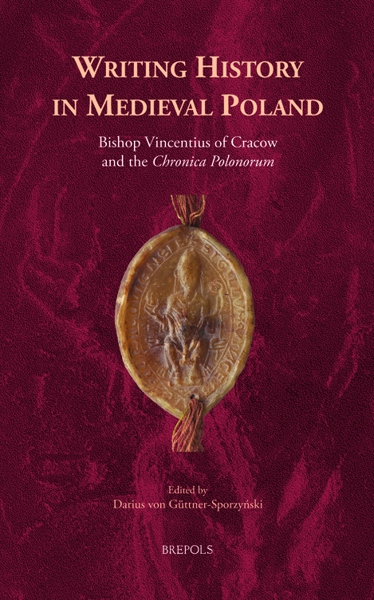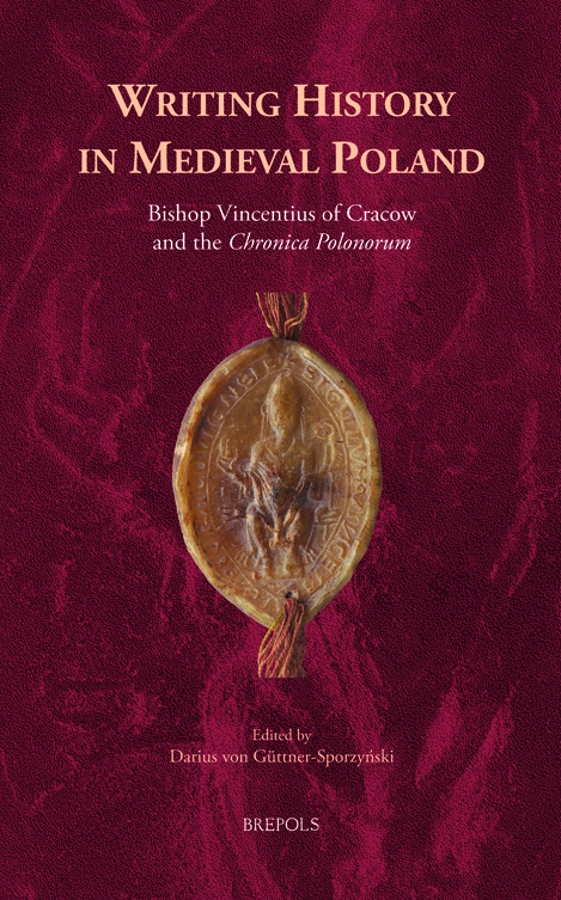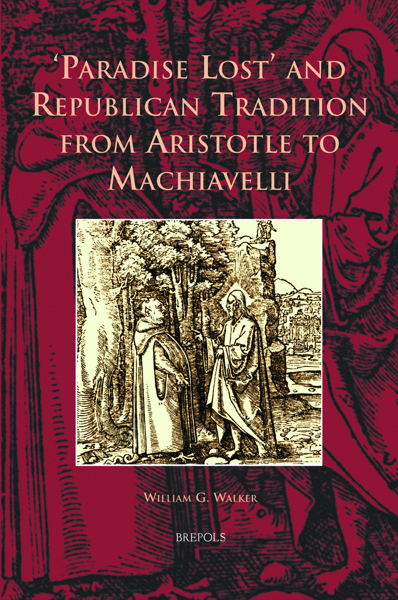
Writing History in Medieval Poland
Bishop Vincentius of Cracow and the 'Chronica Polonorum'
Darius von Güttner-Sporzyński (ed)
- Pages: 289 p.
- Size:156 x 234 mm
- Illustrations:3 b/w, 3 Maps
- Language(s):English, Latin
- Publication Year:2017
- € 90,00 EXCL. VAT RETAIL PRICE
- ISBN: 978-2-503-56951-2
- Hardback
- Available
- € 90,00 EXCL. VAT RETAIL PRICE
- ISBN: 978-2-503-56952-9
- E-book
- Available
Poland’s first native chronicler and a proud contributor to the twelfth century renaissance placed his people’s history on a continuum with the classical world. This work brings to light the importance of Poland in the making of Europe.
“(…) the volume discussed here is important and useful. Its usefulness will augment even more when the English edition of the Chronica Polonorum of Vincentius, announced repeatedly by Darius von Güttner-Sporzyński, will finally become available to the Englishspeaking scholarly community.” (Anna Adamska, in History of Humanities, Fall 2018, p. 414)
“In general, by way of conclusion, it can be said that von Güttner-Sporzyński’s edited volume as a whole paves the way for enhanced research on Poland’s political, ecclesiastical, cultural, social, and economic history in this period. The work the scholars included in his volume are doing shows the opportunities that are available and provide a stimulus for others to make their own contributions.” (Paul W. Knoll, in The Polish Review, 65/1, 2020, p. 79)
Darius von Güttner-Sporzyński has edited a fine volume consisting of twelve contributions. The quality of the chapters is generally high, shedding important light on various aspects of this typical example of the twelfth-century Renaissance” (Thomas A. Fudge, in Parergon, 36/1, 2019, p. 204)
“The publication of this book, which offers a sample in English of all of the relevant scholarly approaches to this important text, is thus an event to be hailed. It will prove of tremendous importance and usefulness for Polish researchers on the text and for Anglophone readers. I hope that this volume will be the point of departure for more research on Master Vincentius’ life and text.” (Dániel Bagi, in The Hungarian Historical Review, 7/1, 2018, p. 147)
“It would be an interesting proposition for an English-reading audience, because, as was mentioned in the introduction, its subjects had not been dealt with in English before. Moreover, the book presents the influence of Western Europe on Polish elites. The work about the Chronica Polonorum and its author enables a comparison to be made between Polish and foreign writing history in the twelfth and thirteenth centuries.” (Anna Kowalska-Pietrzak, in Studi Medievali, LXI/1, 2020, p. 321)
“(…) the volume as a whole can be considered as a kind of handbook, partially summarising previous findings but, in greater part, bringing new insights tot he discussed phenomena.” (Michal Rzepiela, in Mittellateinisches Jahrbuch, 54/3, 2019, p. 515)
This volume presents an in-depth analysis of the Chronica Polonorum, one of the greatest works of the twelfth-century renaissance which profoundly influenced history writing in Central Europe. The Chronica Polonorum was written by Poland’s first native historian Vincentius of Cracow. Educated in Paris and Bologna, he was the first canonically elected bishop of Cracow and a participant of the Fourth Lateran Council. The eyewitness accounts given in the Chronica Polonorum offer insights into the development of twelfth-century Poland, the ambitions of its dynasty, the country’s integration into Christendom, and the interaction between the Polish and Western elites. Vincentius’s work is considered a masterpiece in literary erudition grounded in classical training. The historical evidence it presents illuminates the socio-cultural interaction between Poland and the West during the period. Vincentius’s chronicle demonstrates the strong, enduring influence of the history, law, and traditions of ancient Rome in twelfth-century Europe.
This book deals with several subjects which have increasingly gained in prominence in English-language scholarship in recent years, such as the development of political culture, the diffusion and growth of ideas, the Christianization of the peripheral regions of Europe, and the interaction between cultural, political, and economic changes. In analysing the work of Vincentius and the Polish historiography of the Chronica Polonorum, this volume provides important insights into the development of the so-called peripheral regions of twelfth-century Europe and Poland’s engagement in the twelfth-century renaissance.
Introduction — DARIUS VON GÜTTNER-SPORZYŃSKI
Bishop Vincentius of Cracow and his Chronica Polonorum — DARIUS VON GÜTTNER-SPORZYŃSKI
Vincentius’s Background and Family Origins: The Evidence and Hypotheses — JACEK MACIEJEWSKI
Motives and Inspirations: An Exploration of When and Why the Chronica Polonorum Was Written — JÓZEF DOBOSZ
A History of the Manuscripts of the Chronica Polonorum: The Influence of Vincentius on History Writing — MARIAN ZWIERCAN
The Language of Vincentius’s Chronicle — EDWARD SKIBIŃSKI
The Narrative in Vincentius’s Chronicle — EDWARD SKIBIŃSKI
The Impact and Influence of Antiquity and the Bible in the Chronica Polonorum — KATARZYNA CHMIELEWSKA
Vincentius’s Chronicle and Intellectual Culture of the Twelfth Century — ZÉNON KAŁUŻA
Vincentius’s Construct of a Nation: Poland as res publica — PAWEŁ ŻMUDZKI
The Power of a Prince: Vincentius on the Dynasty’s Source of Power — PRZEMYSŁAW WISZEWSKI
Values and Virtues: Church Life and Courtly Culture — ROBERT BUBCZYK
Lords and Peasants: Polish Society and Economy in Transition — MARCIN RAFAŁ PAUK
Appendix 1 The Main Representatives of the Piast Dynasty (c. 966–1230)
Appendix 2 The Chronology of Polish History c. 920–1230
Index




